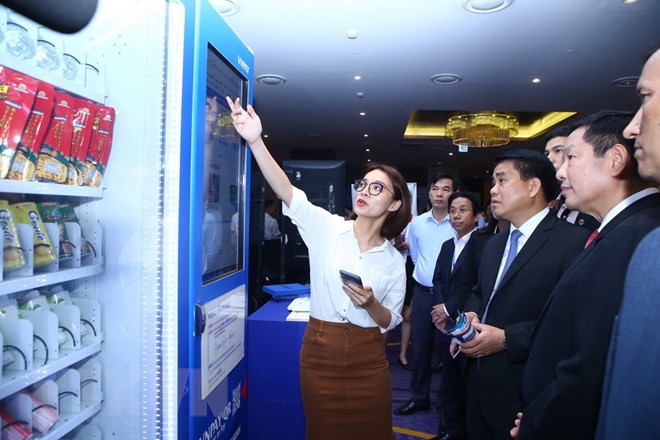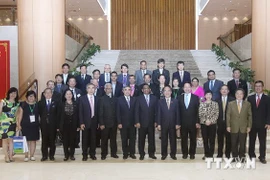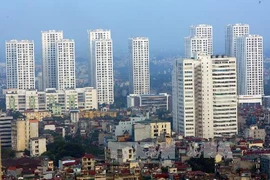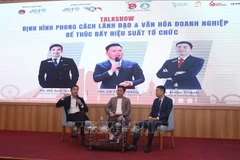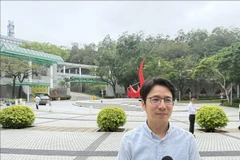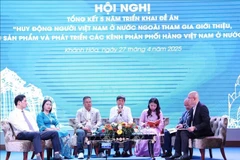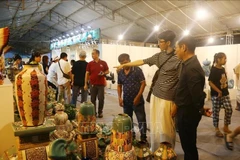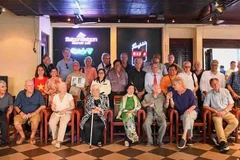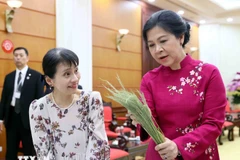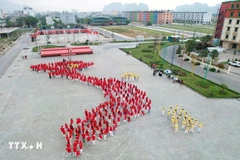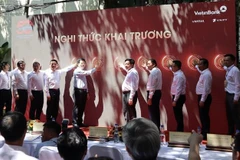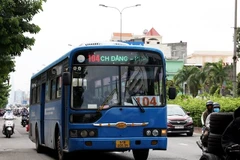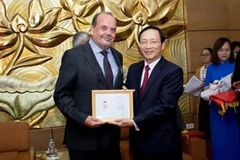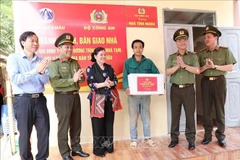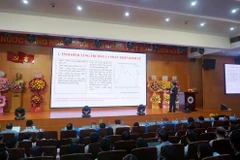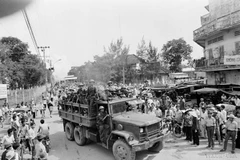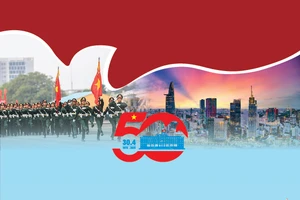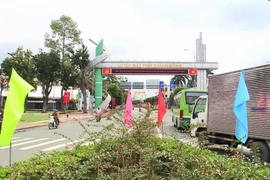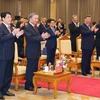Hanoi (VNA) – The freshly-ended Asian-Oceanian ComputingIndustry Organisation (ASOCIO) Smart City Summit 2018 was expected to helpHanoi choose suitable measures and steps to improve living conditions for itsresidents and promote the city’s growth and socio-economic development, saidChairman of the municipal People’s Committee Nguyen Duc Chung.
As one of the super cities in the world in terms of area and populationwith rapid urbanization speed and population rise, Hanoi has faced greatchallenges in planning, traffic, security, health care, education, power,housing, and environmental pollution, he said.
The municipal leader stressed that the city is looking towards the modelof a smart city, bringing convenience, safety and friendliness to all people basingon the application of key technologies in the fourth Industrial Revolution.
Vietnam has set a target of at least three cities having master plans onsmart city building approved and implementing the development of infrastructureand facilities for a smart city.
The ASOCIO Smart City Summit 2018, themed “Creating Smarter City andSecurer City by Digital Solutions,” saw representatives of more than 10countries and experts share their viewpoints, strategies, policies andexperiences in building smart cities, and giving ideas in speeding up thebuilding of such cities in Vietnam and the region through the applying of newtechnologies such as IOT, Big Data, and artificial intelligence (AI).
They also discussed various relevant issues such as proper models forsmart city building, support policies, human resources, digital infrastructureand cyber security, and the development of startup and innovation ecosystem.
ASOCIO President David Wong shared Chung’s opinion, saying that rapid growthwill accompany with various problems such as infrastructure overloading; environmental,air, and noise pollution, affecting the lives and business activities of localpeople.
A report by the UN predicts that in 2050, two-thirds of the globalpopulation will live in cities, with the highest urbanization being seen in Asiaand Africa. The number of urban citizens will rise from 53 percent to 64percent, it said.
Wong stressed the need for closer connectivity among cities to deal withthe above-mentioned problems and supported Hanoi’s plan to build a smart city inthree phases from now until 2030, with three key pillars of health care,transport and tourism.
Meanwhile, Yvonne Chiu, Chairwoman of the World Information Technologyand Service Alliance (WITSA), said that the alliance is willing to ensuredigital transformation, benefiting cities and ensuring security and safety forsmart cities when they are built.
Jay Jenkins, head of the Google Cloud Business in Southeast Asia, saidthat Hanoi has owned favourable infrastructure factors, including numerousVietnamese addresses listed in Google Maps and Google My Business.
Regarding measures to mobilise resources for smart city building,Chairman of the Hanoi People’s Committee Nguyen Duc Chung said that along withthe city’s budget, Hanoi will call for contributions from technology firms inthe city.
Chung also expressed his wish that leading experts in smart cities andpolicymakers in Vietnam and the world will give the city specificrecommendations for it and other cities in Vietnam to succeed in buildingsmarter, safer cities, thus improving the living environment for locals andpromoting their socio-economic growth.-VNA
